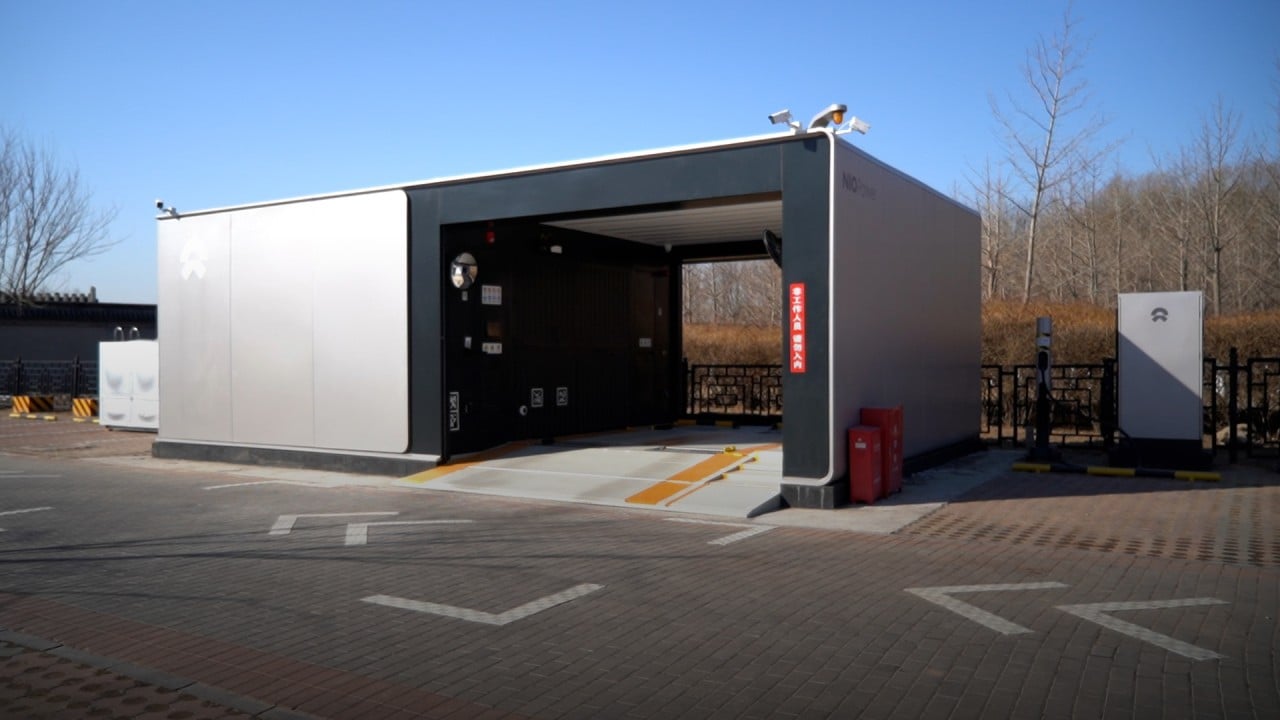
19 Jan World Economic Forum: CATL’s Robin Zeng calls for setting aside geopolitical tensions to address EV battery materials shortage
Countries – from government leaders to businesses and non-governmental organisations – must collaborate to accelerate innovation in the EV battery industry to ensure a resilient supply chain, reduce dependency on critical metals and decarbonise the transport sector to tackle the climate crisis, Zeng told the World Economic Forum meeting in Davos.
“We should really avoid any geopolitical issues in [battery] recycling technologies,” he said during a panel on Wednesday. “If we can provide these recycling technologies to Europe, to the US and to the rest of the world, it’d be very easy to manage mining issues.
“The demand for critical materials might increase by five times in the next 10 years, considering the fast growth of the industry. But at the end of the day, when we achieve 100 per cent electric cars, there will be very tiny amounts of new critical materials to be mined.”
China leads the world in battery recycling technologies, an important solution for addressing battery material shortages.
For instance, Zeng told the forum that CATL currently has the capacity to recycle as much as 99.6 per cent of precious metals such as nickel, cobalt and manganese, and up to 91 per cent of lithium, higher than Europe’s capacity of 70 per cent to 80 per cent. Last year, CATL recycled 100,000 tonnes of waste batteries through its subsidiary Brump to create 13,000 tonnes of lithium carbonate, he said.
EV battery giant CATL to open research and development centre in Hong Kong
EV battery giant CATL to open research and development centre in Hong Kong
But CATL’s business has been affected by the fraught relations between Beijing and the West. In December, for instance, CATL was accused of posing a national security threat in the US and was banned from a US military base. The allegation was based on a letter from US lawmakers led by Republican senator Marco Rubio that said CATL enjoyed a close relationship with the Chinese leadership in Beijing.
“We are fighting climate change … so whatever the geopolitical issues are, we have to find a way,” Zeng said during the panel.
As sales of EVs continue to break records around the world, governments and carmakers are increasingly concerned about the persistent shortages of lithium, nickel and cobalt, which could put the net-zero transition under threat.
CATL to make battery offering 400km driving range from 10-minute charge
CATL to make battery offering 400km driving range from 10-minute charge
S&P Global forecast that a more than 270 per cent increase in lithium production levels is needed to meet the estimated demand from the EV battery sector by 2030. Nickel and cobalt are also expected to be critical, but to a lesser degree as the deployment of iron-based chemistries will remedy their potential shortage, it said.
The Fujian-based company is willing to share its technologies and help overseas carmakers address their battery shortages, Zeng said. By 2042, China will no longer need to mine new mineral materials because of its mature battery recycling market, he added.
As an essential part of decarbonising the automotive ecosystem, the EV transition requires technological innovation, a sustainable and responsible supply chain and the concerted efforts of all stakeholders, Zeng said during another panel on Thursday.
Advancing mining and refinery technology helps to increase the supply of lithium and to alleviate shortages, he said. Increasing energy density helps improve material efficiency and therefore reduces the demand for raw materials.
Finding an alternative at lower costs, such as sodium-ion batteries or cobalt-free cathode materials, is also a solution for reducing dependency on critical materials such as lithium, he said.
According to Zeng, CATL introduced its first generation of sodium-ion batteries in 2021 and is currently working on its second generation, which will give cars a driving range of 400 to 500 kilometres per charge.

